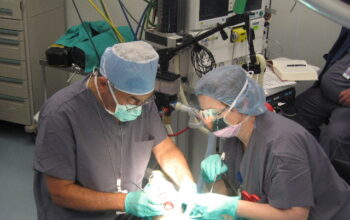The workplace as we know it is evolving at an unprecedented pace, driven by technological advancements, shifting demographics, and changing expectations of employees and employers. The COVID-19 pandemic has accelerated many of these transformations, forcing businesses to adapt to new ways of working. As we look ahead to 2023 and beyond, it’s crucial for organizations to stay ahead of the curve and embrace the key trends that will shape the future of work.
1. Remote Work is Here to Stay
The pandemic forced businesses to rapidly shift to remote work models, and the results have been enlightening. Many organizations have found that remote work not only increases employee satisfaction but also leads to cost savings. With the advancement of technology and the widespread adoption of tools like Zoom and Slack, remote work is expected to remain a significant part of the work landscape in the years to come.
2. The Gig Economy Continues to Grow
The gig economy has been on the rise for several years, and this trend will continue to gain momentum. Freelancers, independent contractors, and gig workers will play an increasingly important role in the workforce, offering organizations the flexibility they need to adapt to changing market conditions.
3. Automation and AI Will Transform Jobs
Automation and artificial intelligence are changing the nature of work. Routine and repetitive tasks are increasingly being automated, which will require workers to upskill and focus on tasks that require creativity, critical thinking, and emotional intelligence. While automation may replace some jobs, it will also create new opportunities in fields related to AI and robotics.
4. Diversity and Inclusion are Non-Negotiable
In the future of work, diversity and inclusion are no longer just buzzwords but critical components of a successful organization. Companies are increasingly recognizing the value of diverse perspectives and are committed to creating inclusive environments that embrace individuals from various backgrounds, experiences, and cultures.
5. Health and Well-being Take Center Stage
The pandemic highlighted the importance of employee health and well-being. Mental health support, flexible work arrangements, and wellness programs are becoming integral to the modern workplace. As we move into the future, companies that prioritize their employees’ physical and mental health will have a competitive edge in attracting and retaining talent.

6. Hybrid Work Models
Hybrid work models, which combine in-office and remote work, are expected to become the norm. Employees will have more control over where and when they work, leading to increased flexibility and work-life balance. Employers will need to invest in technology and policies that support this new way of working.
7. Reskilling and Upskilling
In the face of rapid technological advancements, employees will need to continually reskill and upskill to stay relevant. Lifelong learning will be crucial, and organizations will need to provide resources and opportunities for employees to acquire new skills and knowledge.
8. Sustainability and Social Responsibility
Consumers and employees are increasingly concerned about the impact of businesses on the environment and society. Companies that embrace sustainability and social responsibility will not only attract more customers but also engage and retain top talent. Being a responsible corporate citizen is a trend that is here to stay.
9. Cybersecurity and Data Privacy
As remote work and digital transformation continue to surge, the need for robust cybersecurity and data privacy measures is more critical than ever. Organizations will need to invest in technology and training to protect sensitive data and maintain the trust of their employees and customers.
10. Flexible Workspaces
Traditional office spaces are evolving into flexible workspaces that cater to different work styles and needs. Co-working spaces, hot-desking, and collaborative areas will become more common, offering employees a variety of options for where they work. For more information or to read all about the future of work, you may visit PDF Simpli to learn more.
In conclusion, the future of work in 2023 and beyond is exciting but also full of challenges. To thrive in this ever-evolving landscape, businesses must be agile, forward-thinking, and employee-centric. Embracing the trends mentioned above will help organizations adapt to the changing world of work and stay competitive in the global marketplace.





